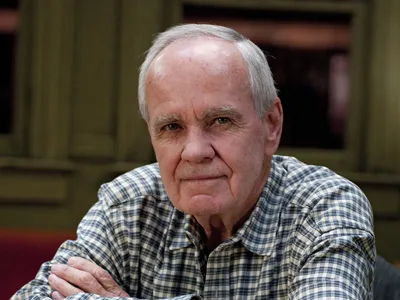Cormac McCarthy was, like another uber-masculine (albeit polar opposite, aesthetically) writer of the old school, Philip Roth (more on him, here), an artist who did the work. Shunning the spotlight, apparently willing to live a scrappy sort of existence where seemingly everything but the work was a distraction, he epitomized the rarest of sensibilities where any kind of pleasure that encroached on the work was a luxury, something to be avoided. If the books were mediocre his example would still serve as an antidote to our social media moment, where so many writers worry first about brand before they figure out how to compose interesting sentences, he is at once throwback and hero for those in need of anti-heroes. But the books were anything but mediocre, and while more than a handful of his efforts have been (correctly) hailed as masterworks, posterity is going to be exceedingly kind to his legacy; there will be few if any who live and write anything like he did. (You read a book like Blood Meridian and, while comparisons to Faulker, Melville, Shakespeare, and the Bible are inevitable, you mostly have no frame of reference because not only did no one else write like this, it causes you to wonder who else, aside from this author, even thought like this.)
It would be too easy by half to claim No Country for Old Men is unfilmable because it practically reads as script, and the Coen Brothers were wise enough to use the text as much as possible, including this perfect ending of a perfect film, word for word from the last page of the perfect novel. It’s writing like this that makes even the best efforts by so many talented contemporary writers seem bereft of experience and soul, like a paint-by-numbers of life learned from media as opposed to dearly earned through the pain and profundity of reality. There’s an acknowledgment of loss, impermanence, and the salvation of memories and deeds to make the suffering bearable, something worth preserving, and celebrating.

